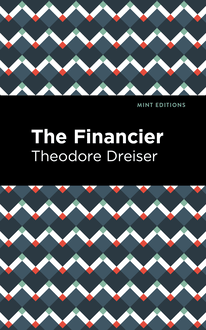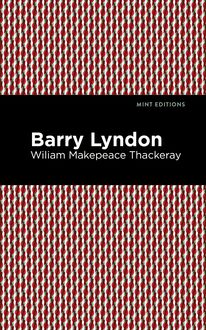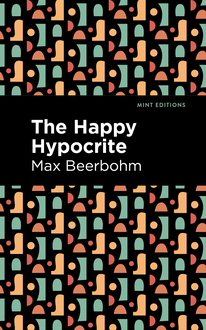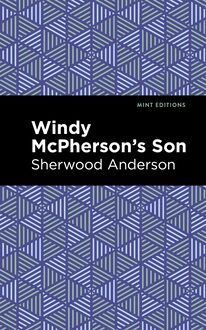-
 Univers
Univers
-
 Ebooks
Ebooks
-
 Livres audio
Livres audio
-
 Presse
Presse
-
 Podcasts
Podcasts
-
 BD
BD
-
 Documents
Documents
-
- Cours
- Révisions
- Ressources pédagogiques
- Sciences de l’éducation
- Manuels scolaires
- Langues
- Travaux de classe
- Annales de BEP
- Etudes supérieures
- Maternelle et primaire
- Fiches de lecture
- Orientation scolaire
- Méthodologie
- Corrigés de devoir
- Annales d’examens et concours
- Annales du bac
- Annales du brevet
- Rapports de stage
La lecture à portée de main
Vous pourrez modifier la taille du texte de cet ouvrage
Découvre YouScribe en t'inscrivant gratuitement
Je m'inscrisDécouvre YouScribe en t'inscrivant gratuitement
Je m'inscrisEn savoir plus
Vous pourrez modifier la taille du texte de cet ouvrage
En savoir plus

Description
Man and Wife (1870) is a novel by Wilkie Collins. Written at the height of Collins’ career, Man and Wife displays the author’s the trademark sense of mystery and psychological unease that made him a household name around the world. Recognized as an important Victorian novelist and pioneer of detective fiction, Wilkie Collins was a writer with a gift for thoughtful entertainment, stories written for a popular audience that continue to resonate with scholars and readers today. At the estate of Lady Lundie in the lush Scottish countryside, a complicated situation is beginning to unfold. Geoffrey Delamyn, a young heir, has secretly promised to marry Anne Silvester, the governess of Lady Lundie’s stepdaughter Blanche. When Geoffrey learns of his impending disinheritance, he realizes that in order to live a life of luxury he must find himself a wealthy widow to marry, thereby breaking his promise to Anne. Because of an antiquated Scots marriage law, his verbal commitment is legally binding, forcing Geoffrey to come up with a questionable plan to extricate himself from his contract. He employs the assistance of his friend Arnold, who disguises himself as Geoffrey and meets Anne at a local inn, where he refers to her as his wife in front of several witnesses. As the story unfolds, Arnold falls in love with Blanche, Anne seeks legal counsel, and Geoffrey does whatever he can to further his own interests at the expense of others. Beyond its sensational plot, Man and Wife is a masterpiece of comedy and social critique for seasoned readers of Victorian fiction and newcomers alike. With a beautifully designed cover and professionally typeset manuscript, this edition of Wilkie Collins’ Man and Wife is a classic work of English literature reimagined for modern readers.
Sujets
Informations
| Publié par | Mint Editions |
| Date de parution | 21 mai 2021 |
| Nombre de lectures | 0 |
| EAN13 | 9781513287256 |
| Langue | English |
| Poids de l'ouvrage | 1 Mo |
Informations légales : prix de location à la page 0,0650€. Cette information est donnée uniquement à titre indicatif conformément à la législation en vigueur.
Extrait
Man and Wife
Wilkie Collins
Man and Wife was first published in 1870.
This edition published by Mint Editions 2021.
ISBN 9781513282237 | E-ISBN 9781513287256
Published by Mint Editions®
minteditionbooks.com
Publishing Director: Jennifer Newens
Design & Production: Rachel Lopez Metzger
Project Manager: Micaela Clark
Typesetting: Westchester Publishing Services
C ONTENTS P ROLOGUE : T HE I RISH M ARRIAGE P ART THE F IRST T HE V ILLA AT H AMPSTEAD P ART THE S ECOND T HE M ARCH OF T IME T HE S TORY F IRST S CENE . T HE S UMMER -H OUSE C HAPTER THE F IRST . T HE O WLS C HAPTER THE S ECOND . T HE G UESTS C HAPTER THE T HIRD . T HE D ISCOVERIES C HAPTER THE F OURTH . T HE T WO C HAPTER THE F IFTH . T HE P LAN C HAPTER THE S IXTH . T HE S UITOR C HAPTER THE S EVENTH . T HE D EBT C HAPTER THE E IGHTH . T HE S CANDAL S ECOND S CENE . T HE I NN C HAPTER THE N INTH . A NNE C HAPTER THE T ENTH . M R . B ISHOPRIGGS C HAPTER THE E LEVENTH . S IR P ATRICK C HAPTER THE T WELFTH . A RNOLD C HAPTER THE T HIRTEENTH . B LANCHE T HIRD S CENE . L ONDON C HAPTER THE F OURTEENTH . G EOFFREY AS A L ETTER -W RITER C HAPTER THE F IFTEENTH . G EOFFREY IN THE M ARRIAGE M ARKET C HAPTER THE S IXTEENTH . G EOFFREY AS A P UBLIC C HARACTER F OURTH S CENE . W INDYGATES C HAPTER THE S EVENTEENTH . N EAR IT C HAPTER THE E IGHTEENTH . N EARER S TILL C HAPTER THE N INETEENTH . C LOSE ON IT C HAPTER THE T WENTIETH . T OUCHING IT C HAPTER THE T WENTY -F IRST . D ONE ! C HAPTER THE T WENTY -S ECOND . G ONE C HAPTER THE T WENTY -T HIRD . T RACED C HAPTER THE T WENTY -F OURTH . B ACKWARD C HAPTER THE T WENTY -F IFTH . F ORWARD C HAPTER THE T WENTY -S IXTH . D ROPPED C HAPTER THE T WENTY -S EVENTH . O UTWITTED C HAPTER THE T WENTY -E IGHTH . S TIFLED F IFTH S CENE . G LASGOW C HAPTER THE T WENTY -N INTH . A NNE A MONG THE L AWYERS C HAPTER THE T HIRTIETH . A NNE IN THE N EWSPAPERS S IXTH S CENE . S WANHAVEN L ODGE C HAPTER THE T HIRTY -F IRST . S EEDS OF THE F UTURE (F IRST S OWING ) C HAPTER THE T HIRTY -S ECOND . S EEDS OF THE F UTURE (S ECOND S OWING ) C HAPTER THE T HIRTY -T HIRD . S EEDS OF THE F UTURE (T HIRD S OWING ) S EVENTH S CENE . H AM F ARM C HAPTER THE T HIRTY -F OURTH . T HE N IGHT B EFORE C HAPTER THE T HIRTY -F IFTH . T HE D AY C HAPTER THE T HIRTY -S IXTH . T HE T RUTH AT L AST C HAPTER THE T HIRTY -S EVENTH . T HE W AY O UT C HAPTER THE T HIRTY -E IGHTH . T HE N EWS FROM G LASGOW E IGHTH S CENE . T HE P ANTRY C HAPTER THE T HIRTY -N INTH . A NNE W INS A V ICTORY N INTH S CENE . T HE M USIC -R OOM C HAPTER THE F ORTIETH . J ULIUS M AKES M ISCHIEF T ENTH S CENE . T HE B EDROOM C HAPTER THE F ORTY -F IRST . L ADY L UNDIE DOES HER D UTY E LEVENTH S CENE . S IR P ATRICK’S H OUSE C HAPTER THE F ORTY -S ECOND . T HE S MOKING -R OOM W INDOW C HAPTER THE F ORTY -T HIRD . T HE E XPLOSION T WELFTH S CENE . D RURY L ANE C HAPTER THE F ORTY -F OURTH . T HE L ETTER AND THE L AW T HIRTEENTH S CENE . F ULHAM C HAPTER THE F ORTY -F IFTH . T HE F OOT -R ACE F OURTEENTH S CENE . P ORTLAND P LACE C HAPTER THE F ORTY -S IXTH . A S COTCH M ARRIAGE F IFTEENTH S CENE . H OLCHESTER H OUSE C HAPTER THE F ORTY -S EVENTH . T HE L AST C HANCE S IXTEENTH S CENE . S ALT P ATCH C HAPTER THE F ORTY -E IGHTH . T HE P LACE C HAPTER THE F ORTY -N INTH . T HE N IGHT C HAPTER THE F IFTIETH . T HE M ORNING C HAPTER THE F IFTY -F IRST . T HE P ROPOSAL C HAPTER THE F IFTY -S ECOND . T HE A PPARITION C HAPTER THE F IFTY -T HIRD C HAPTER THE F IFTY -F OURTH . T HE M ANUSCRIPT C HAPTER THE F IFTY -F IFTH . T HE S IGNS OF THE E ND C HAPTER THE F IFTY -S IXTH . T HE M EANS C HAPTER THE F IFTY -S EVENTH . T HE E ND E PILOGUE . A M ORNING C ALL
PROLOGUE
THE IRISH MARRIAGE
PART THE FIRST
T HE V ILLA AT H AMPSTEAD
I
O N A SUMMER’S MORNING, BETWEEN thirty and forty years ago, two girls were crying bitterly in the cabin of an East Indian passenger ship, bound outward, from Gravesend to Bombay.
They were both of the same age—eighteen. They had both, from childhood upward, been close and dear friends at the same school. They were now parting for the first time—and parting, it might be, for life.
The name of one was Blanche. The name of the other was Anne.
Both were the children of poor parents, both had been pupil-teachers at the school; and both were destined to earn their own bread. Personally speaking, and socially speaking, these were the only points of resemblance between them.
Blanche was passably attractive and passably intelligent, and no more. Anne was rarely beautiful and rarely endowed. Blanche’s parents were worthy people, whose first consideration was to secure, at any sacrifice, the future well-being of their child. Anne’s parents were heartless and depraved. Their one idea, in connection with their daughter, was to speculate on her beauty, and to turn her abilities to profitable account.
The girls were starting in life under widely different conditions. Blanche was going to India, to be governess in the household of a Judge, under care of the Judge’s wife. Anne was to wait at home until the first opportunity offered of sending her cheaply to Milan. There, among strangers, she was to be perfected in the actress’s and the singer’s art; then to return to England, and make the fortune of her family on the lyric stage.
Such were the prospects of the two as they sat together in the cabin of the Indiaman locked fast in each other’s arms, and crying bitterly. The whispered farewell talk exchanged between them—exaggerated and impulsive as girls’ talk is apt to be—came honestly, in each case, straight from the heart.
“Blanche! you may be married in India. Make your husband bring you back to England.”
“Anne! you may take a dislike to the stage. Come out to India if you do.”
“In England or out of England, married or not married, we will meet, darling—if it’s years hence—with all the old love between us; friends who help each other, sisters who trust each other, for life! Vow it, Blanche!”
“I vow it, Anne!”
“With all your heart and soul?”
“With all my heart and soul!”
The sails were spread to the wind, and the ship began to move in the water. It was necessary to appeal to the captain’s authority before the girls could be parted. The captain interfered gently and firmly. “Come, my dear,” he said, putting his arm round Anne; “you won’t mind me! I have got a daughter of my own.” Anne’s head fell on the sailor’s shoulder. He put her, with his own hands, into the shore-boat alongside. In five minutes more the ship had gathered way; the boat was at the landing-stage—and the girls had seen the last of each other for many a long year to come.
This was in the summer of eighteen hundred and thirty-one.
II
T WENTY-FOUR YEARS LATER—IN THE SUMMER of eighteen hundred and fifty-five—there was a villa at Hampstead to be let, furnished.
The house was still occupied by the persons who desired to let it. On the evening on which this scene opens a lady and two gentlemen were seated at the dinner-table. The lady had reached the mature age of forty-two. She was still a rarely beautiful woman. Her husband, some years younger than herself, faced her at the table, sitting silent and constrained, and never, even by accident, looking at his wife. The third person was a guest. The husband’s name was Vanborough. The guest’s name was Kendrew.
It was the end of the dinner. The fruit and the wine were on the table. Mr. Vanborough pushed the bottles in silence to Mr. Kendrew. The lady of the house looked round at the servant who was waiting, and said, “Tell the children to come in.”
The door opened, and a girl twelve years old entered, lending by the hand a younger girl of five. They were both prettily dressed in white, with sashes of the same shade of light blue. But there was no family resemblance between them. The elder girl was frail and delicate, with a pale, sensitive face. The younger was light and florid, with round red cheeks and bright, saucy eyes—a charming little picture of happiness and health.
Mr. Kendrew looked inquiringly at the youngest of the two girls.
“Here is a young lady,” he said, “who is a total stranger to me.”
“If you had not been a total stranger yourself for a whole year past,” answered Mrs. Vanborough, “you would never have made that confession. This is little Blanche—the only child of the dearest friend I have. When Blanche’s mother and I last saw each other we were two poor school-girls beginning the world. My friend went to India, and married there late in life. You may have heard of her husband—the famous Indian officer, Sir Thomas Lundie? Yes: ‘the rich Sir Thomas,’ as you call him. Lady Lundie is now on her way back to England, for the first time since she left it—I am afraid to say how many years since. I expected her yesterday; I expect her to-day—she may come at any moment. We exchanged promises to meet, in the ship that took her to India—‘vows’ we called them in the dear old times. Imagine how changed we shall find each other when we do meet again at last!”
“In the mean time,” said Mr. Kendrew, “your friend appears to have sent you her little daughter to represent her? It’s a long journey for so young a traveler.”
“A journey ordered by the doctors in India a year since,” rejoined Mrs. Vanborough. “They said Blanche’s health required English air. Sir Thomas was ill at the time, and his wife couldn’t leave him. She had to send the child to England, and who should she send her to but me? Look at her now, and say if the English air hasn’t agreed with her! We two mothers, Mr. Kendrew, seem literally to live again in our children. I have an only child. My friend has an only child. My daughter is little Anne—as I was. My friend’s daughter is little Blanche—as she was. And, to crown it all, those two girls have taken the same fancy to each other which we took to each other in the by-gone days at school. One has often heard of hereditary hatred. Is there such a thing as hereditary love as well?”
Before the guest could answe
-
 Univers
Univers
-
 Ebooks
Ebooks
-
 Livres audio
Livres audio
-
 Presse
Presse
-
 Podcasts
Podcasts
-
 BD
BD
-
 Documents
Documents
-
Jeunesse
-
Littérature
-
Ressources professionnelles
-
Santé et bien-être
-
Savoirs
-
Education
-
Loisirs et hobbies
-
Art, musique et cinéma
-
Actualité et débat de société
-
Jeunesse
-
Littérature
-
Ressources professionnelles
-
Santé et bien-être
-
Savoirs
-
Education
-
Loisirs et hobbies
-
Art, musique et cinéma
-
Actualité et débat de société
-
Actualités
-
Lifestyle
-
Presse jeunesse
-
Presse professionnelle
-
Pratique
-
Presse sportive
-
Presse internationale
-
Culture & Médias
-
Action et Aventures
-
Science-fiction et Fantasy
-
Société
-
Jeunesse
-
Littérature
-
Ressources professionnelles
-
Santé et bien-être
-
Savoirs
-
Education
-
Loisirs et hobbies
-
Art, musique et cinéma
-
Actualité et débat de société
- Cours
- Révisions
- Ressources pédagogiques
- Sciences de l’éducation
- Manuels scolaires
- Langues
- Travaux de classe
- Annales de BEP
- Etudes supérieures
- Maternelle et primaire
- Fiches de lecture
- Orientation scolaire
- Méthodologie
- Corrigés de devoir
- Annales d’examens et concours
- Annales du bac
- Annales du brevet
- Rapports de stage

















